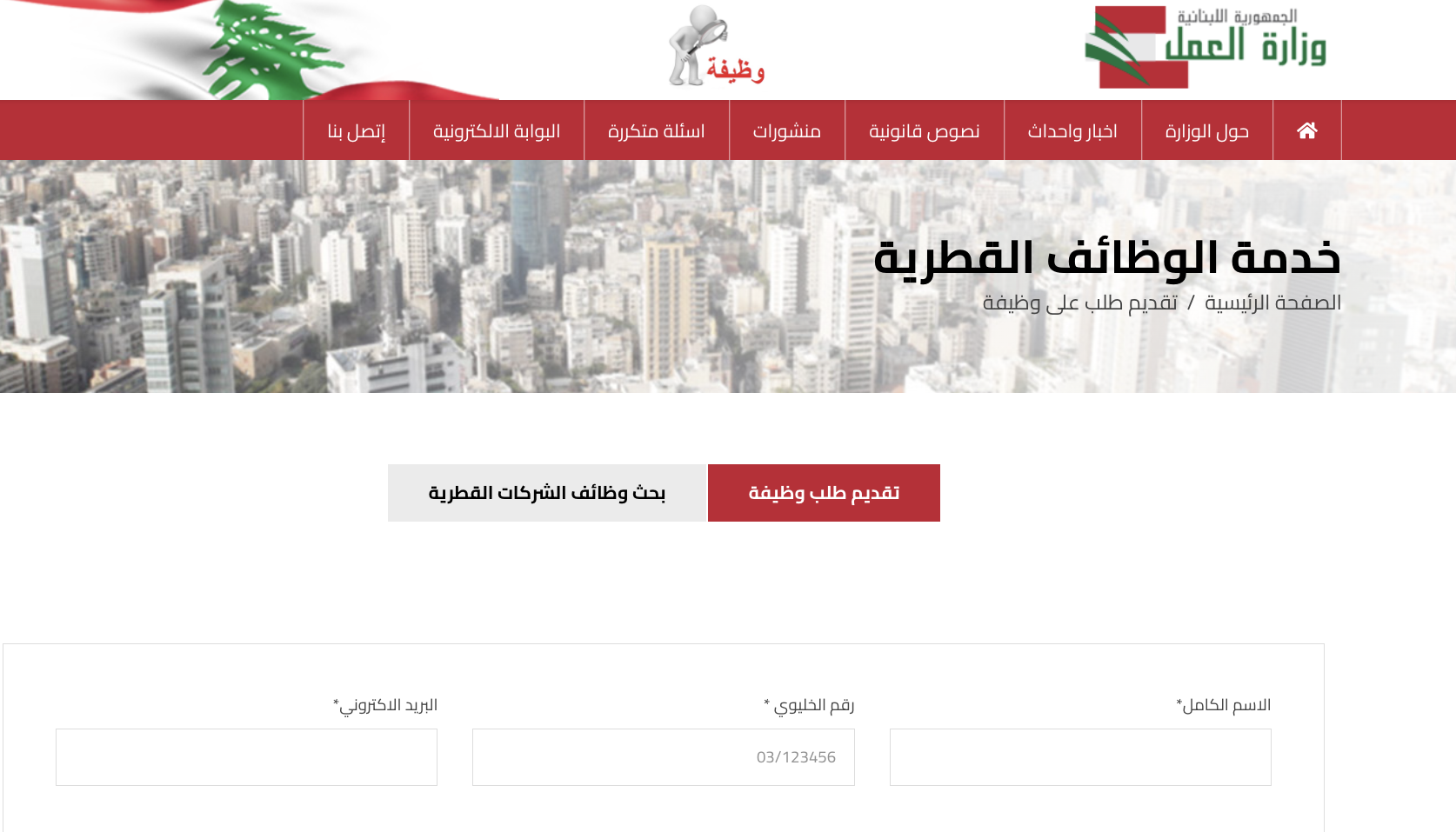
People walk in the Qatari coastal city of Lusail, ahead of the Qatar 2022 FIFA World Cup. (AFP)
BEIRUT — Three years into one of the worst financial crises to hit any country since the 1850s, Lebanon’s Ministry of Labor has launched an online platform for citizens to find jobs, albeit not in Lebanon.
Instead, the initiative matches Lebanese job seekers with employers abroad, in Qatar.
A week since the launch, some people told L’Orient Today they’ve applied for jobs through the platform and welcome the initiative, while others deemed it as too little too late, three years into Lebanon’s all-out economic freefall.
“This is a chance for Lebanese people to get [work] experience and financial income,” caretaker Labor Minister Mustafa Bayram said at a press conference last Monday to announce the launch of the platform.
The platform comes as thousands of young Lebanese people seek to leave home, as the country’s economic crisis means precious few well-paying jobs — or any jobs at all — remain available to them in Lebanon.
“The ministry itself will not take part in the recruitment process, but will facilitate job opportunities between the two countries,” Bayram said. The minister did not respond to L’Orient Today’s requests for comment.
Could the Qatar jobs platform be one solution? Some job seekers say they aren’t so thrilled about the idea.
Twin 27-year-old brothers Samer and Saeed Itani, both civil engineering graduates in Beirut, strongly object to Bayram’s initiative.
“Our parents don’t have anyone but us, we can’t pick up our things and just leave for Qatar, we need real solutions to keep us here,” Saeed says.
“Lebanon needs us too,” Samer insists.
“The real work needed is here in this broken country. This is where our skills are needed. If only they weren’t so corrupt [Lebanese officials] Qatari companies would have been keen on investing here,” Saeed adds.
Mohammad al-Zein, a 26-year-old mechanical engineering graduate, sees the platform as a potential opportunity and submitted an application recently.
“I hate the pessimism that the majority of the Lebanese are currently in,” he says.
Zein has been unemployed for the past year, unable to find a job in Lebanon. He says he applied for hundreds of jobs during that time.
“This platform is simple to use, and will be actively monitored by recruiters in Qatar so I’m hopeful,” he adds.
 A screenshot of the Lebanese Minister of Labor's online platform for citizens to find jobs in Qatar. (Credit: Screenshot/Ministry of Labor)
A screenshot of the Lebanese Minister of Labor's online platform for citizens to find jobs in Qatar. (Credit: Screenshot/Ministry of Labor)
Brain drain crisis
Others condemned the outrage that Bayram has faced from Lebanese citizens.
“It’s not like he’s the one solely responsible for the crisis. He proposed an easier route to migration that most youth have been looking for,” says Danny Khoury, a 30-year-old high school math teacher who is also using the new platform to apply for jobs. “He did us a favor by giving us a higher chance of getting hired by signing the agreement with the Qataris.”
Bayram had stressed during the press conference last Monday that the jobs platform is “not [for] migration, but a cooperation between the two countries.”
Some people insist that citizens are expecting too much of newly elected ministers.
“We need to be realistic about the current situation. If you need the money today, you have to leave. It’ll be a matter of years before Lebanon even begins recovering, and salaries paid here become enough to get by again,” says Dunia Hamido, a 23-year-old graphic designer in Beirut.
Hamido tells L’Orient Today that she has been working as a freelancer for clients living in the Gulf for the past two years, but has already submitted her resume to the online job portal to “hopefully find a more stable and full-time job in Qatar.”
She previously applied for jobs “on less regulated websites on the internet, so I feel safer applying through the ministry’s official site.”
Should Hamido find work in Qatar, she’d become part of a wave of Lebanese youth leaving their homes for jobs abroad. In a December 2020 assessment, the World Bank warned that brain drain was becoming an “increasingly desperate option” in Lebanon.
Two years later, the situation has only worsened, as the lira continues its freefall.
According to the Arab Youth Survey, in the Arab world, more than 54 percent of young Lebanese wish to leave their country, alongside 54 percent of their contemporaries in war-stricken Syria and 58 percent of young Palestinians living under Israeli occupation.
A recent study by Lebanese economist Dr. Bassam Hamdar showed that unemployment among Lebanese youth exceeded 60 percent in 2020, “but this is disguised by the authorities who insist that the numbers are less” he tells L’Orient Today.
“Over 30,000 Lebanese university students graduate [yearly], but the job market in Lebanon only requires between 3,500-4,000 graduates [per year], so we have a surplus,” Hamdar says.
Though the brain drain is a loss for Lebanon, Hamdar added that “we can’t blame the minister for facilitating jobs in Qatar, since unemployment is a long-term problem.”
“The solutions Lebanese are seeking are either digital employment or international employment, those are the two options left,” Hamdar says.
“The platform will contribute to brain drain but it is a solution for now, instead of remaining unemployed, which is creating pressure on their family, community, and on the economy” he adds.
Hamdar insists that alternatives and opportunities will be available after the “maritime understanding between Lebanon and occupied Palestine, which will create an abundance of opportunities” related to offshore oil and gas exploration.
“This brain drain is temporary,” Hamdar adds. “Once jobs in Lebanon are available, many Lebanese abroad would like to come back — because there's no better place than home.”